Diary of Trooper Ion Llewellyn Idriess-Oct 1916-Part 8
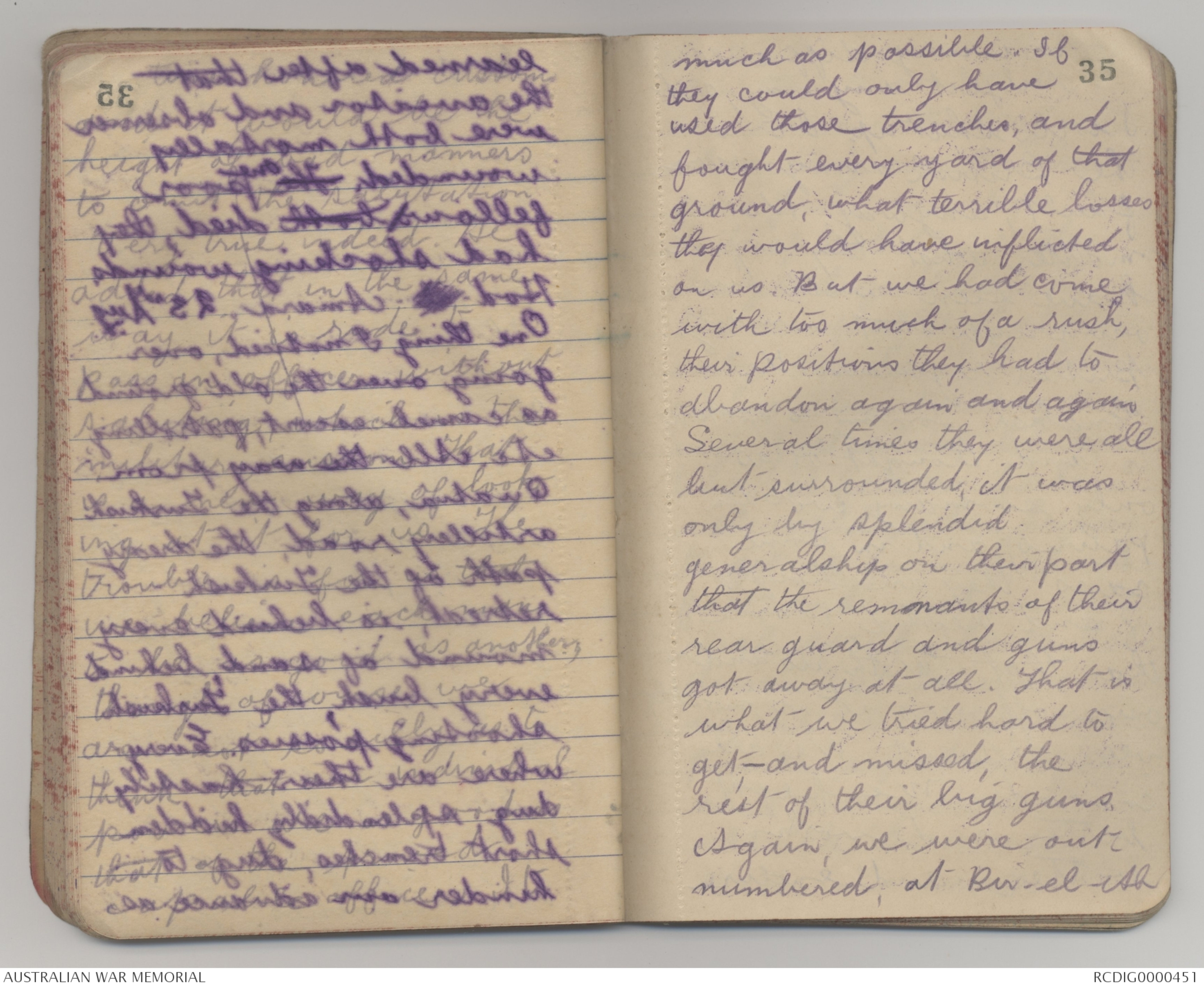
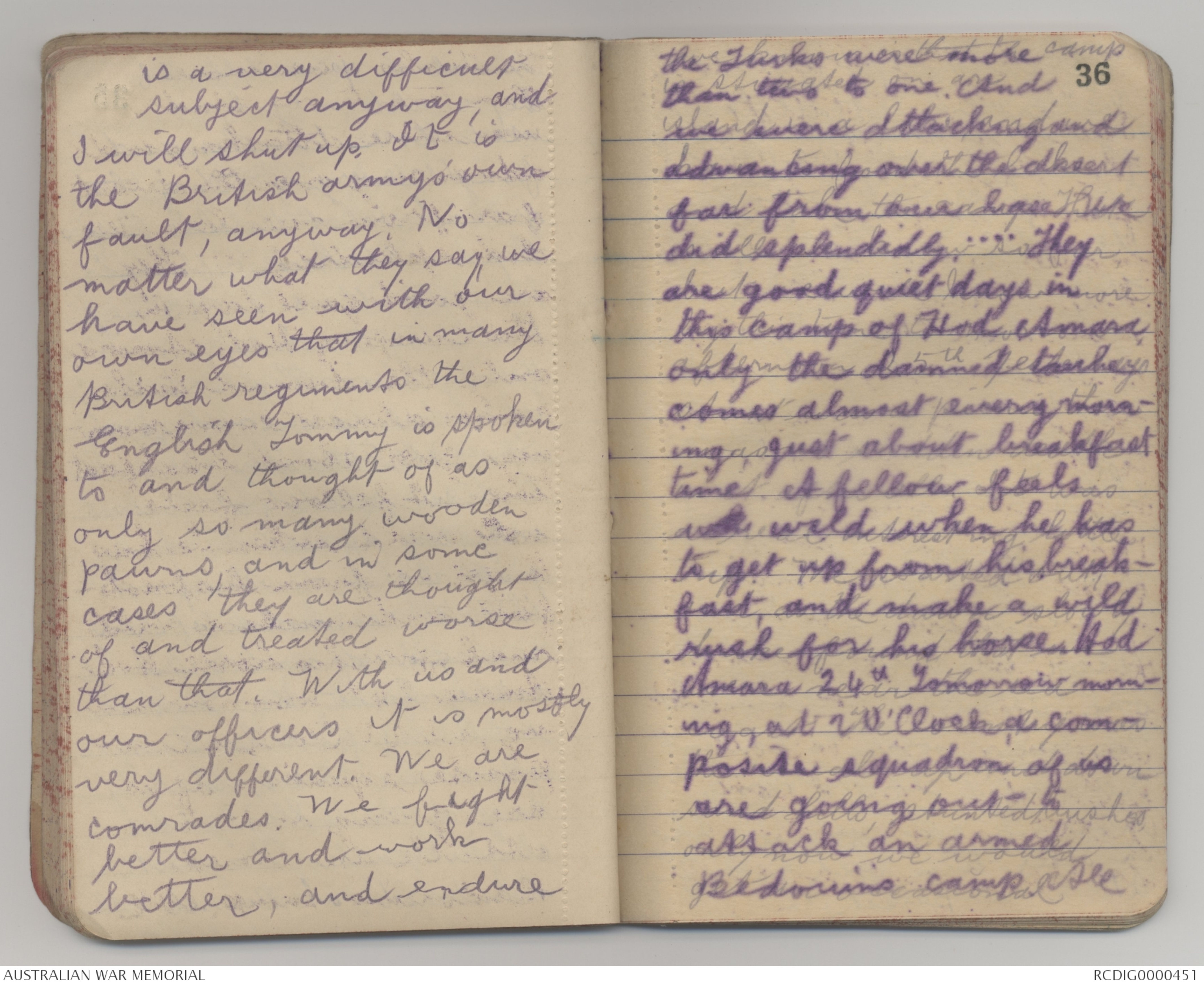
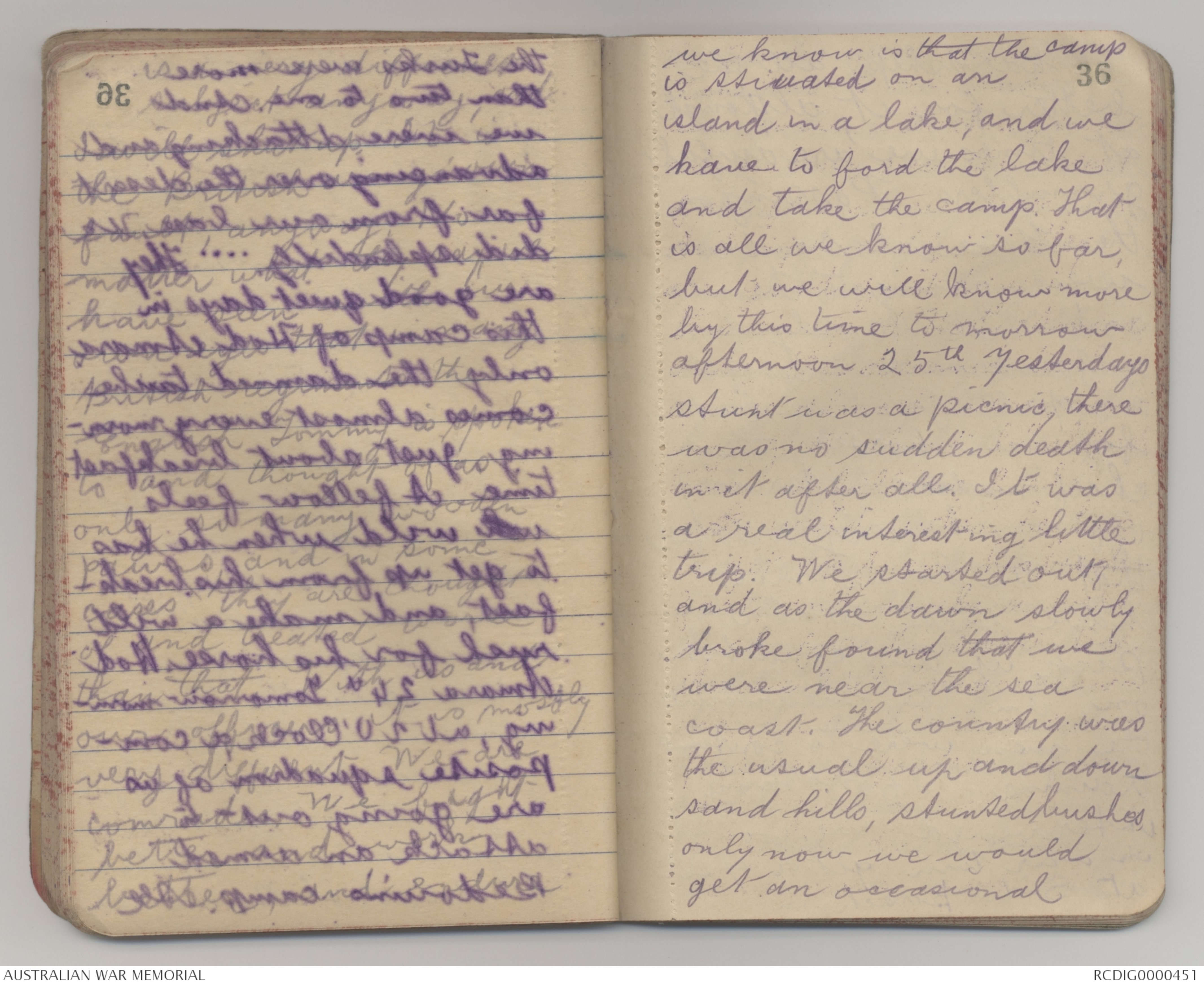
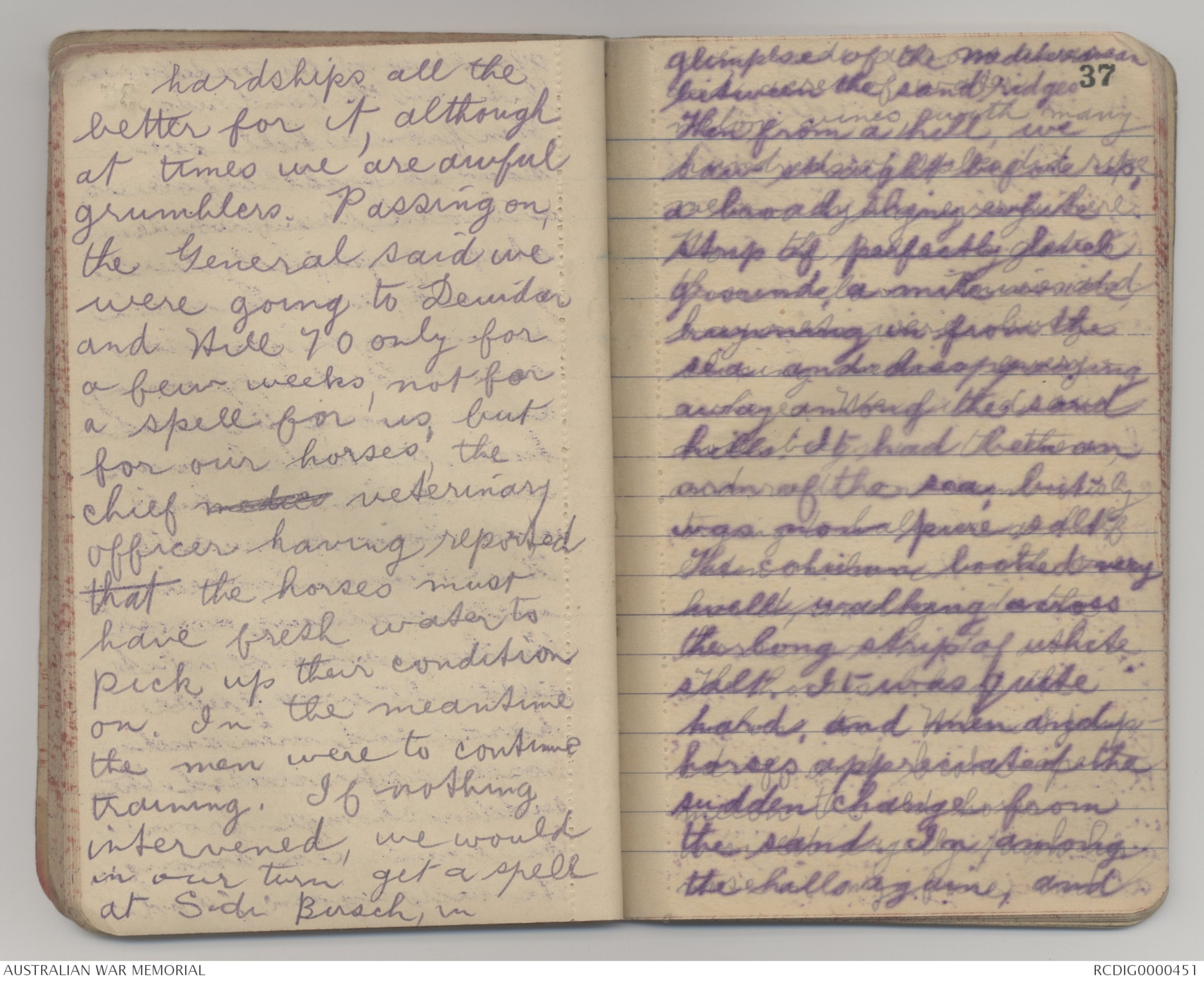
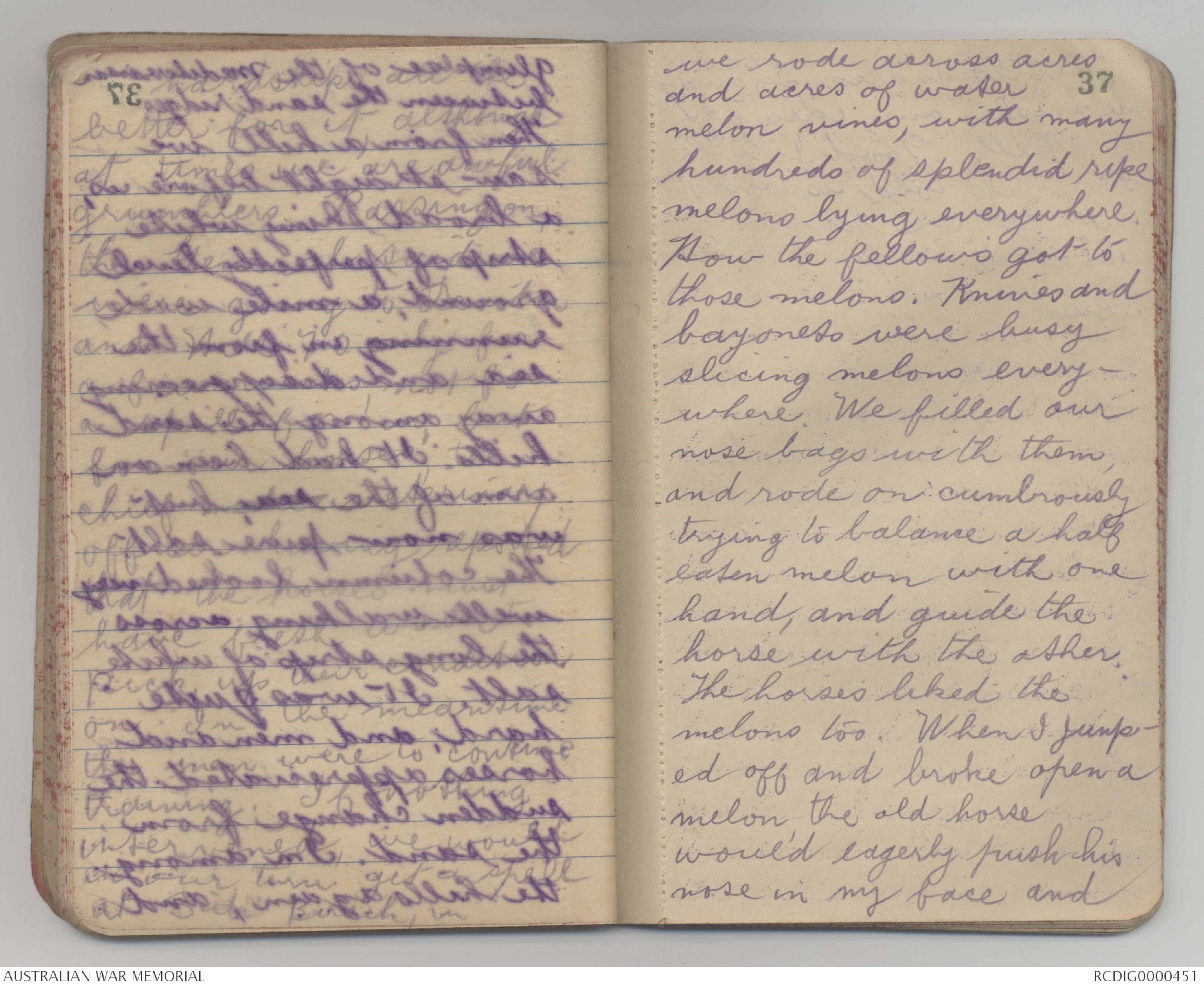
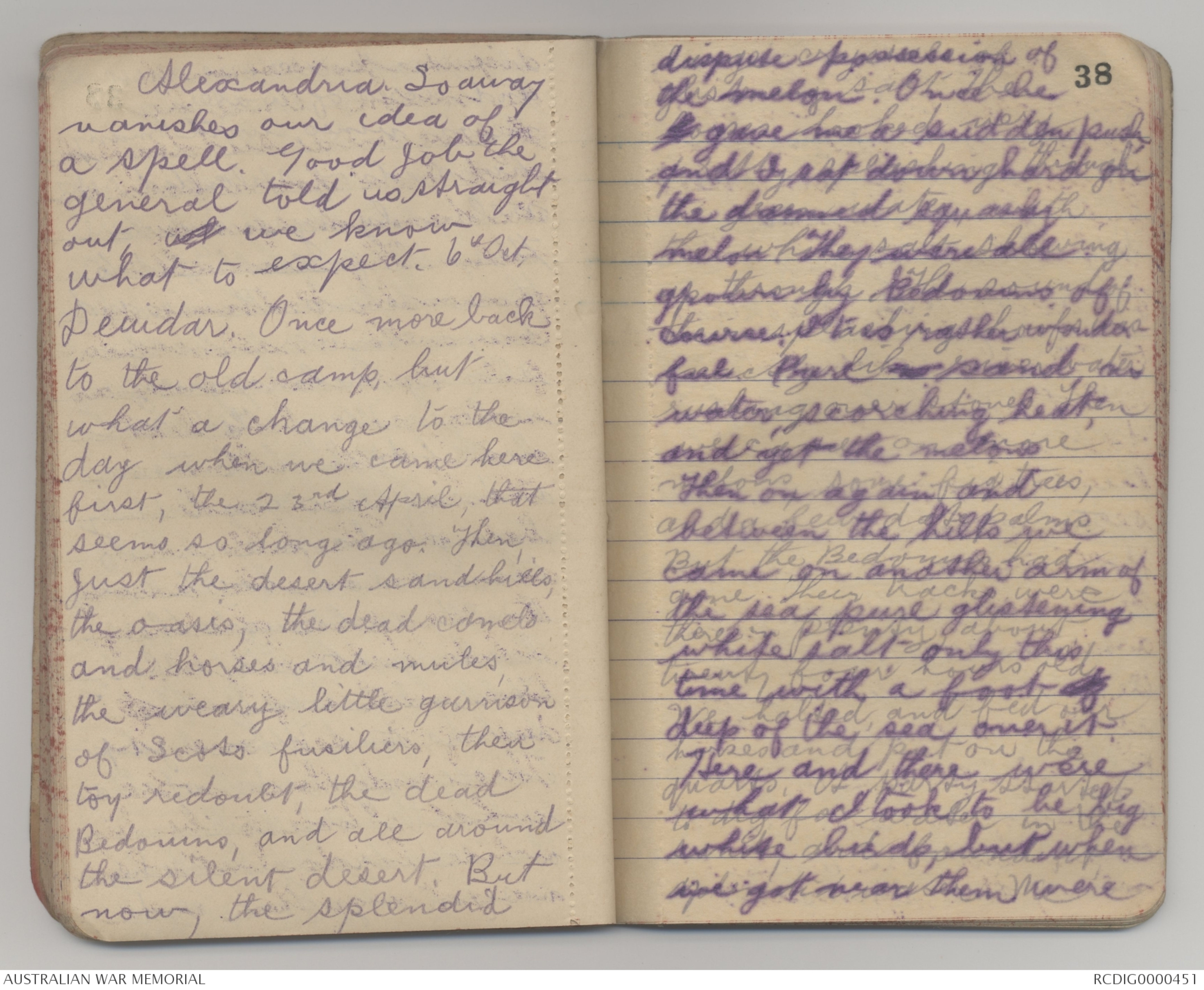
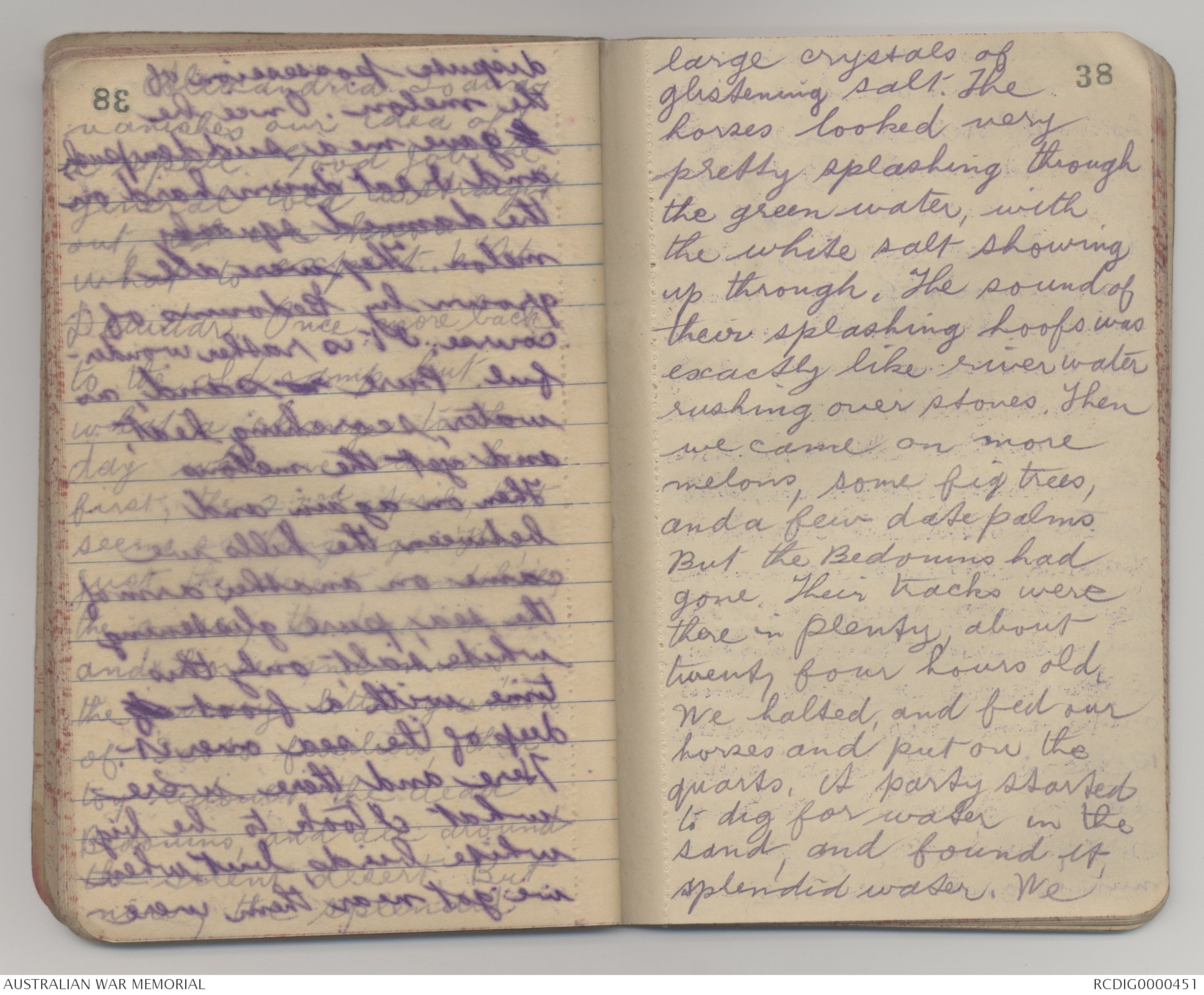
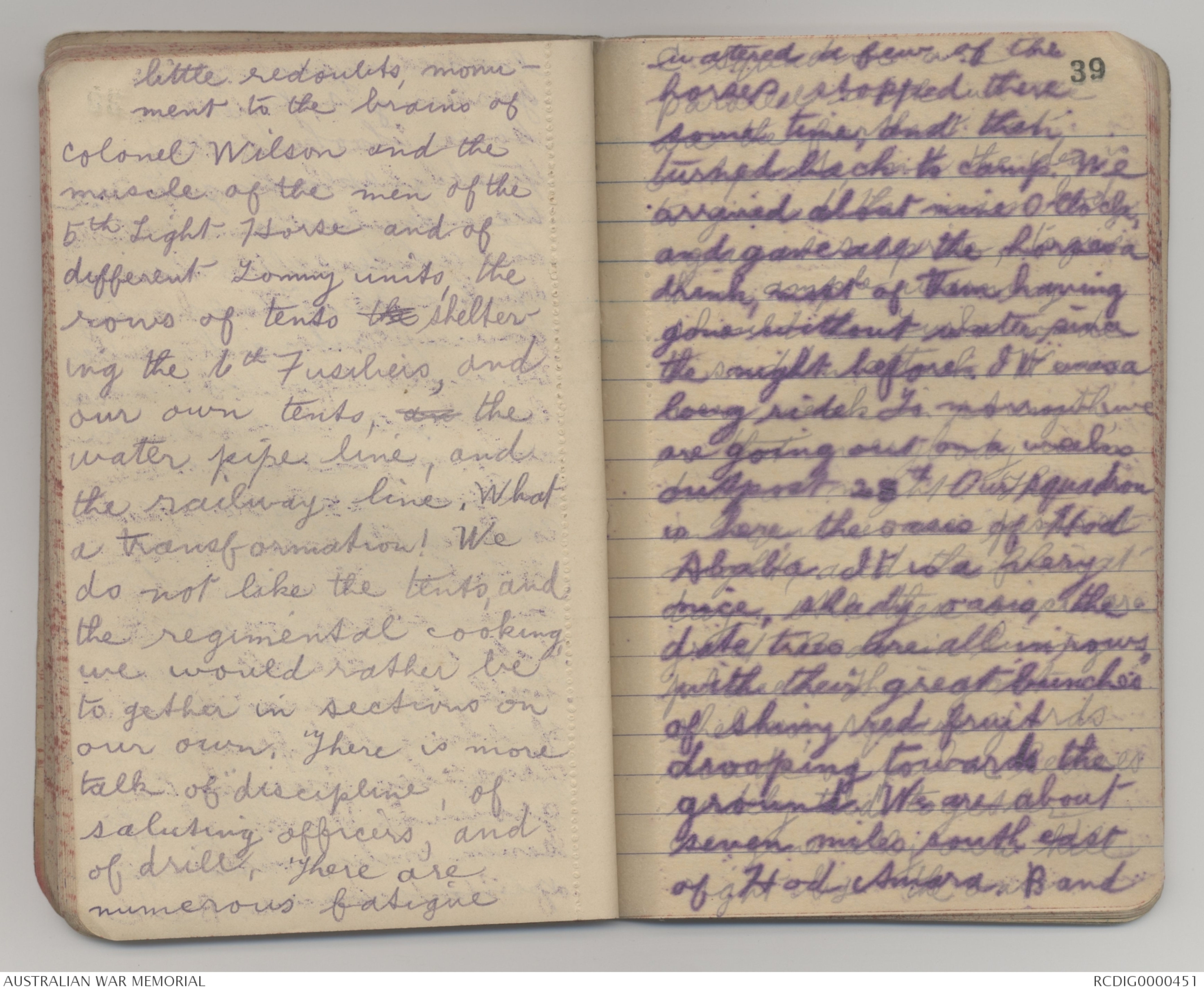
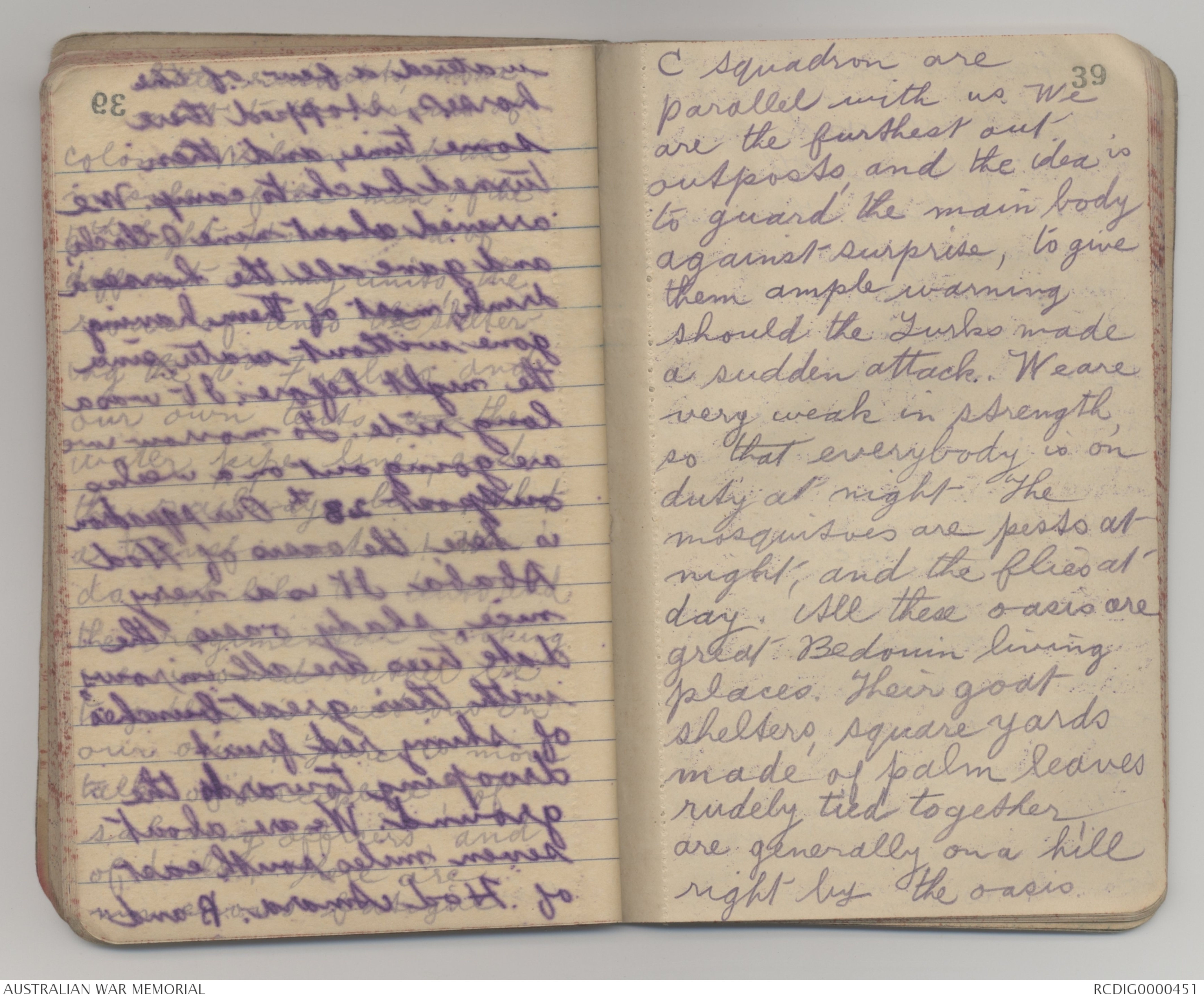
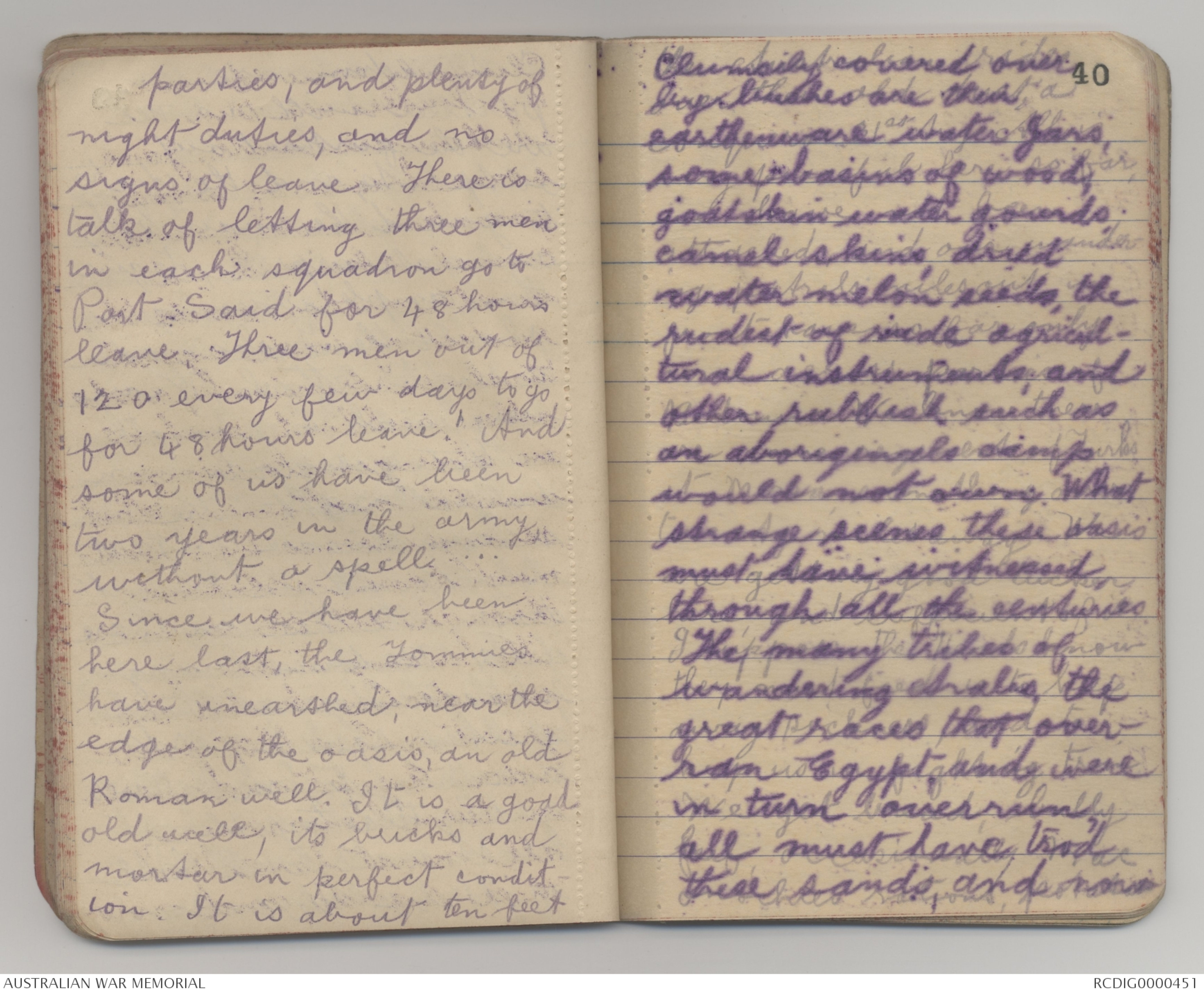
35
much as possible. If
they could only have
used those trenches, and
fought every yard of that
ground, what terrible losses
they would have inflicted
on us. But we had come
with too much of a rush,
their positions they had to
abandon again and again.
Several times they were all
but surrounded, it was
only by splendid
generalship on their part
that the remonants of their
rear guard and guns
got away at all. That is
what we tried hard to
get, and missed, the
rest of their big guns.
Again, we were outnumbered,
at Bir-el-Ah
is a very difficult
subject anyway, and
I will shut up. It is
the British army's own
fault, anyway. No
matter what they say, we
have seen with our
own eyes that in many
British regiments the
English Tommy is spoken
to and thought of as
only so many wooden
pawns, and in some
cases they are thought
of and treated worse
than that. With us and
our officers it is mostly
very different. We are
comrades. We fight
better and work
better, and endure
36
the Turks were more
than two to one. And
we were attacking and
advancing over the desert
far from our base. We
did splendidly. . . . . They
are good quiet days in
this camp of Hod Amara
only the damned tank
comes almost every morning,
just about breakfast
time. A fellow feelswh wild when he has
to get up from his breakfast,
and make a wild
rush for his horse. Hod
Amara 24th tomorrow morning,
at 2 O'Clock, a composite
squadron of us
are going out to
attack an armed
Bedouins camp.
36
we know is that the camp
is stiuated on an
island in a lake, and we
have to ford the lake
and take the camp. That
is all we know so far,
but we will know more
by this time to morrow
afternoon. 25th Yesterdays
stunt was a picnic, there
was no sudden death
in it after all. It was
a real interesting little
trip. We started out,
and as the dawn slowly
broke found that we
were near the sea
coast. The country was
the usual up and down
sand hills, stunted bushes
only now we would
get an occasional
hardships all the
better for it, although
at times we are awful
grumblers. Passing on,
the General said we
were going to Deuidar
and Hill 70 only for
a few weeks, not for
a spell for us, but
for our horses, the
chief medica veterinary
officer having reported
that the horses must
have fresh water to
pick up their condition
on. In the meantime
the men were to continue
training. If nothing
intervened, we would
in our turn get a spell
at Sidi Birsch, in
37
glimpse of the mediterranean
between the sand ridges
Then from a hill, we
saw straight before us,
a broad shiny white
strip of perfectly level
ground, a mile inside
narrowing in from the
sea and disappearing
away among the sand
hills. It had been an
arm of the sea, but
was now pure salt.
The column looked very
well walking across
the long strip of white
salt. It was quite
hard, and men and
horses appreciated the
sudden change from
the sand. In among
the hills again, and
37
we rode across acres
and acres of water
melon vines, with many
hundreds of splendid ripe
melons lying everywhere.
How the fellows got to
those melons. Knives and
bayonets were busy
slicing melons everywhere.
We filled our
nose bags with them,
and rode on cumbrously
trying to balance a half
eaten melon with one
hand, and guide the
horse with the other.
The horses liked the
melons too. When I jumped
off and broke open a
melon, the old horse
would eagerly push his
nose in my face and
Alexandria. So away
vanishes our idea of
a spell. Good job the
general told us straight
out, wx we know
what to expect. 6th Oct.
Deuidar. Once more back
to the old camp, but
what a change to the
day when we came here
first, the 23rd April, that
seems so long ago. Then,
just the desert sand hills,
the oasis, the dead camels
and horses and mules,
the weary little gurrison
of Scots fusiliers, then
toy redoubt, the dead
Bedouins, and all around
the silent desert. But
now, the splendid
38
dispute possession of
the melon. Once hex gave me a sudden push,
and I sat down hard on
the damned squashy
melon. They were all
grown by Bedouins of
course. It is rather wonderful.
Pure no sand, no
water, scorching heat,
and yet the melons
Then on again and
between the hills we
came on another arm of
the sea, pure glistening
white salt only this
time with a foot of
deep of the sea over it.
Here and there were
what I took to be big
white birds, but when
we got near them were
38
large crystals of
glistening salt. The
horses looked very
pretty splashing through
the green water, with
the white salt showing
up through, The sound of
their splashing hoofs was
exactly like river water
rushing over stones. Then
we came on more
melons, some fig trees,
and a few date palms.
But the Bedouins had
gone. Their tracks were
there in plenty, about
twenty four hours old.
We halted, and fed our
horses and put on the
quarts. A party started
to dig for water in the
sand, and found it,
splendid water. We
little redoubts, monu-
ment to the brains of
Colonel Wilson and the
muscle of the men of the
5th Light Horse and of
different Tommy units, the
rows of tents the shelter-
ing the 6th Fusiliers, and
our own tents, are the
water pipe line, and
the railway line. What
a transformation! We
do not like the tents, and
the regimental cooking,
we would rather be
to gether in sections on
our own. There is more
talk of "discipline", of
saluting officers, and
of drill, There are
numerous fatigue
39
watered a few of the
horses, stopped there
some time, and then
turned back to camp. We
arrived about nine O'Clock,
and gave all the horses a
drink, most of them having
gone without water since
the night before. It was a
long ride. To morrow we
are going out on a weeks
outpost 28th Our squadron
is here, the oasis of Hod
Ababa. It is a very
nice, shady oasis, the
date trees are all in rows,
with their great bunches
of shiny red fruit
drooping towards the
ground. We are about
seven miles south east
of Hod Amara. B and
39
C Squadron are
parallel with us. We
are the furthest out
outposts, and the idea is
to guard the main body
against surprise, to give
them ample warning
should the Turks made
a sudden attack. We are
very weak in strength,
so that everybody is on
duty at night. The
mosquitoes are pests at
night, and the flies at
day. All these oasis are
great. Bedouin living
places. Their goat
shelters, square yards
made of palm leaves
rudely tied together,
are generally on a hill
right by the oasis.
parties, and plenty of
night duties, and no
signs of leave. There is
talk of letting three men
in each squadron go to
Port Said for 48 hours
leave. Three men out of
120 every few days to go
for 48 hours leave! And
some of us have been
two years in the army
without a spell. . . . .
Since we have been
here last, the Tommies
have unearthed, near the
edge of the oasis, an old
Roman well. It is a good
old well, its bricks and
mortar in perfect condition.
It is about ten feet
40
Clumsily covered over
by bushes are their
earthenware water Jars,
some basins of wood,
goatskin water gourds,
camel skins, dried
water melon seeds, the
rudest of rude agricultural
instruments, and
other rubbish such as
an aboriginals camp
would not own. What
strange scenes these oasis
must have witnessed
through all the centuries.
The many tribes of
wandering Arabs, the
great races that overran
Egypt, and were
in turn overrun,
all must have trod
these sands, and now
 Sandy Mudie
Sandy MudieThis transcription item is now locked to you for editing. To release the lock either Save your changes or Cancel.
This lock will be automatically released after 60 minutes of inactivity.